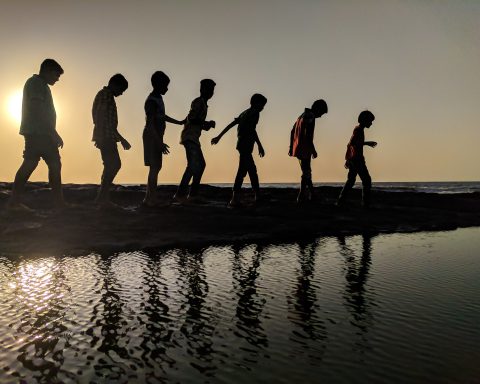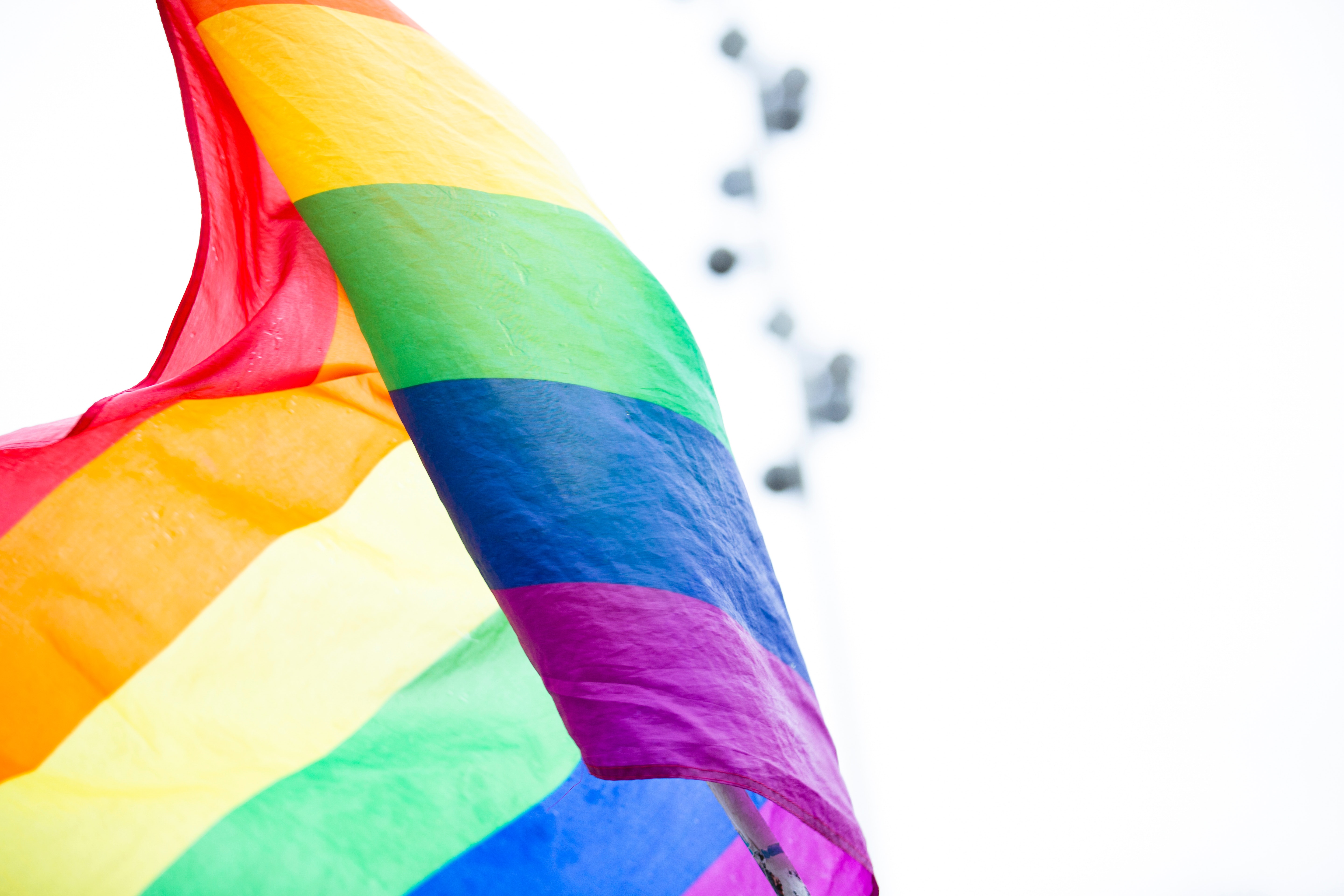A Millennial’s Dilemma on Having Children

They may not make the front page, but a number of articles lately have been reporting a lower birth rate among millennials. The story is often framed in economic terms, but for me the question of whether or not to have children is primarily a moral and personal dilemma. There are hard choices involved with parenthood in the 21st century, and I hope that the Church can help us all find some answers.
I have wanted to have children for a long time. I’m a Not-Yet-Mother, and have been since I was two. I got my first baby doll, Judy, for my second birthday. She had blinking eyes and a pale green dress with a blue ribbon, and I loved her. Then came the twins—Rachel and Riley. At six, I adopted a toddler-doll, Lauren, and at twelve—perhaps too old to be interested in baby dolls anymore—I began to mother Josh.
At sleepovers, my friends and I would stay up naming our future children. The names changed from sleepover to sleepover throughout the years, but our hope-filled imaginations remained. At eighteen, when I first began dating my now husband, one of the very first conversations we had was about children. How many did we want? What age did we want to be, ideally, when we started a family? What might adoption look like? Could we both work? How would the child be cared for? We have stayed up many-a-night over the years talking it all through, imagining different scenarios, and eagerly awaiting the moment when it could all come to fruition.
___________________________________________
Can I bring a beautiful child into a world that is groaning under the weight of humanity as it is?
___________________________________________
But now, here I am, married for almost three years, and just shy of my graduate school graduation. We have a second income on the horizon—maybe even a house in a year or two. The logistical hurdles we wanted to jump before starting a family are just about jumped. Some days, that’s exciting; most days it’s terrifying. Now I stay up for a different reason, wondering, “Can I really bring another life into this world?”
I’m a Not-Yet-Mother turned Should-I-Be-Mother, living in the tension between the hopes I’ve always had and the realities our world speaks. My questions of anticipation have turned to questions of apprehension. Can I bring a beautiful child into a world where there are so many beautiful children without a home? Can I bring a beautiful child into a world that is groaning under the weight of humanity as it is?
For me, the greatest factor in deciding to procreate—or not—is the environment. Climate Change is taking its toll on our planet, and it is far exacerbated by human activity. In a report released in October 2018, The Intergovernmental Panel on Climate Change revealed just how dire the situation has become: the global community has about twelve years to curb climate change before its effects are irreversible. The burden of human activity—at least in the way we choose to live— and the carbon emissions we produce have become too heavy for this great earth to bear with the number of people it currently supports. Can I add another life when the life-style we choose brings suffering to creation and its inhabitants? One of the key ways to decrease one’s carbon footprint is to not reproduce or to have fewer children. But at what cost to me and to my generation?
I realize that individuals can only do so much— it’s corporations and institutions that must make the biggest changes. In fact, back in 2017, the Carbon Majors Report deduced that just 25 corporations were responsible for over half the global industrial emissions since 1988, which is enough to greatly impact climate change.[1] Is it fair—or even just—for me to give up one of the most beautiful parts of life when my individual efforts—no matter how sacrificial—won’t create the wide-spread, long-term change we need? On the other hand, if corporations won’t change on their own and governmental policies won’t encourage them to, is it ethical for me, as a person of privilege, to not do my part? After all, a bunch of individual actions can make a big difference.
___________________________________________
One of the key ways to decrease one’s carbon footprint is to not reproduce or to have fewer children. But at what cost to me and to my generation?
___________________________________________
These are the things I wonder. Often, I move past this set of basic questions, arguing to myself that responsible parents in every age have asked if procreating is wise and fair. And, indeed, I’m glad my parents brought me into this world—despite its many flaws and injustices. Plus, life, when afforded the option, is so much more than just surviving. To be selfish perhaps, wouldn’t my life be happier and more complete if I had the joy of raising a child—and learned the lessons that come from the concomitant pain and frustration?
I’ve imagined and awaited an unborn child since I was myself a child. But the world is so uncertain right now. Can I bring a precious life into an existence where it will—not might, but will—be affected by the devastation caused by hurricanes, earthquakes, tornados, tsunamis, flooding, and extreme heat? When there will be upheaval caused by millions of people migrating? When water itself will become a hot commodity?
Perhaps I’d rather reduce the uncertainty for a child that is already here. There are so many children in need of a home. Maybe my family could look different from how so many think of “family.” Couldn’t I adopt a child, giving her a home, helping her through whatever travails may come? As much as I want it, as much as my body craves it, could I give up the experience of pregnancy? Or maybe we have one child and then adopt another, or two others. We’ve certainly talked about this, hoped for it even. So maybe that’s what we do. Would that work? What if not just we, but our species as a whole finally started to restrain its numbers in order to let other species live?
___________________________________________
I don’t know the moral answers—or my own answers, even. But I know that as a young, married woman, it’s almost blasphemy to even ask these questions aloud in most religious circles.
___________________________________________
But, no matter how we go about having children, there are more questions that have to be answered. Where will we live, with housing costs skyrocketing? In the 1940s, the average home value was just $2,938. Had the price been consistent, adjusting for inflation, a house in 2000 should have been just $30,600, rather than over $100,000. By now, millennials are looking at paying upwards of $200,000 for a modest, livable house.[2] Even rentals have become too expensive, with the national average costing over $1,405 a month—often even higher than a mortgage would be. Moreover, I have to wonder how will we provide medical care when insurance is so expensive and too often out-of-reach? The cost of health spending per person has increased sixfold since the 1970s, and that’s adjusting for inflation. Plus, how will we provide an education when public schools are being defunded and the price of college continues to increase? Many millennials are still drowning in their own educational debt!
With monthly loan payments and car payments and increasing housing prices, we may need two incomes to support just two people. Is having a child, much less two or three, even financially feasible? And if it is, what personal sacrifices would I have to make to make it happen? What about my career, my free time, my financial freedom (if I’m lucky enough to have it), my ability to keep life in balance? Are those considerations too selfish? Regardless, they are present. But, at the end of the day, they don’t offer too great a roadblock. My urge for a child is strong enough to warrant a few compromises.
Here, though, is what I’m not sure about: Is it my right as an individual—is it really my right—to compromise society’s wellbeing by bringing another child into this world? I can counter this easily, superficially, by focusing on the social benefits: wouldn’t my child contribute to the workforce? To fixing problems facing society? To demonstrating God’s love in and for the world? But in the context of a soaring world population and limited resources, it’s hard to argue that growing the sheer numbers of humans is a net benefit to society. If the world can’t support my children, should I bring them into it?
___________________________________________
I need….[n]ot a Church obsessed with filling pews with the “unicorn-millennial” and their mythical offspring, but a Church present to the hopes and fears of those of us who don’t know what to do.
___________________________________________
I don’t know the moral answers—or my own answers, even. But I know that as a young, married woman, it’s almost blasphemy to even ask these questions aloud in most religious circles. For the most part, I stay silent until I can privately confide in someone I trust. But these conversations are too important to be kept in the dark. As a millennial struggling with these concerns, I crave the cross generational wisdom from people who have asked these questions throughout the ages, people who have wrestled faithfully with God’s call in their lives and in the world. Are these questions I’m asking worthwhile? Reasonable? Warranted? Do millennial Might-Be-Parents have different concerns than those of our predecessors?
This is where I need the Church, a village of faithful, multi-generational people who take vows to help raise children “to glorify God and enjoy God forever.” But too often, despite its good intentions, the Church doesn’t welcome such conversations. It treats millennials as the answered prayers for declining membership, as a commodity rather than as companions on the same journey. I need a visible and vocal Church—not a Church that judges and pressures, but a Church open to tough conversation, where God’s Spirit is present. Not a Church obsessed with filling pews with the “unicorn-millennial” and their mythical offspring, but a Church present to the hopes and fears of those of us who don’t know what to do. We also need an active Church, a Church that advocates for governmental action on climate change, for affordable housing for the poor and middle-class, for a living wage, for accessible health care and an attainable education. We need a “political” Church, one that isn’t afraid to get its hands dirty wherever there is injustice.
I am a Not-Yet-Mother turned Should-I-Be-Mother in need of a conversation partner and an advocate. The church must grow in both of these capacities. But still, I choose the Church.
[1] Tess, Riley. “Just 100 Companies Responsible for 71% of Global Emissions, Study Says.” The Guardian, July 10, 2017. https://www.theguardian.com/sustainable-business/2017/jul/10/100-fossil-fuel-companies-investors-responsible-71-global-emissions-cdp-study-climate-change (accessed January 19, 2018).
[2] Martin, Emmie. “Here’s How Much More Expensive Life is for You than it was for Your Parents.” CNBC, June 21, 2017. https://www.cnbc.com/2017/06/21/life-is-much-more-expensive-for-you-than-it-was-for-your-parents.html (accessed January 19, 2018).
[3] Laune, Rachel. “U.S Housing Rents hit Record-High Average of $1,405 per Month.” CBS News, July 6, 2018. https://www.cbsnews.com/news/u-s-urban-rents-hit-all-time-high-at-average-1405-report/ (accessed January 19, 2018).
[4] Kamal, Rabah and Cynthia Cox. “How Has U.S. Spending on Healthcare Changed Over Time?” Health System Tracker, December 10, 2018. https://www.healthsystemtracker.org/chart-collection/u-s-spending-healthcare-changed-time/#item-health-services-spending-growth-slowed-a-bit-in-recent-quarters_2018 (Accessed January 19, 2018).
***
Author Bio: Hannah Trawick is currently a Masters of Divinity student at Columbia Theological Seminary in Decatur, Ga. She is a lifelong member of the Presbyterian Church, USA and is an ordained elder. She is currently on track to become an Ordained Minister of Word and Sacrament in 2020. In addition to her work as a student, she serves as a speaker and consultant for the Interfaith Youth Core’s Alumni Speakers Bureau through which she advises colleges and universities, community organizations, and churches on interfaith action, and advocacy. She lives in Decatur, GA with her husband Jake and cat Hank.






Unbound Social